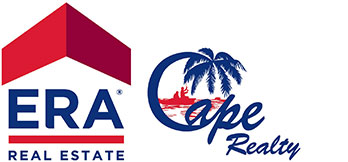
One of the most important aspects of the home buying process is determining how much money to set aside for a down payment (the percentage of a home’s purchase price that you are responsible for paying at closing). You may have heard the saying that the ideal amount for a down payment is 20% of a home’s purchasing price – a fairly daunting prospect, since that amount typically represents a substantial chunk of money.
So how much should your down payment be? Truthfully, there’s no “right” answer to that question; it’s dependent on your personal situation and your preferences. But there are some steps you should take before making your decision, which we break down below.
Calculate your current savings and debt-to-income ratio. Before deciding how much house you can afford and how much of a down payment you can make, you will need to have a solid understanding of your finances. That means taking into account your savings, as well as your monthly expenses.
A helpful way to make sense of these finances is by calculating your debt-to-income (DTI) ratio. You can do this by estimating the monthly amount of money you owe (credit card bills, student loans, rent or mortgage payments and so on) and dividing that number by your pre-tax monthly income. The lower your DTI percentage, the more comfortable lenders will feel providing you with a loan.
Set aside money for closing, as well as a cushion for emergencies. Closing costs account for anywhere from 3 to 6% of the balance of your loan – not an insignificant amount, by any means. You’ll want to make sure you have separate funds available to cover these costs. And as any homeowner will tell you, the move process always involves at least a few unforeseen issues. If something in your new home breaks a week after you settle in, you don’t want to be unable to pay for repairs.
Explore your loan options. There are plenty of different types of loans from which to choose, depending on your circumstances and preferences. Conventional loans are great for buyers who have a good credit score, and allow for down payments as low as 3%. Fixed-rate mortgages provide the security of having a relatively unchanged monthly payment for the duration of the loan. Government-backed loans offer specific advantages to those who qualify and might otherwise have trouble securing a conventional loan. Deciding which loan is right for you will help determine how much of a down payment you will need.
Weigh the pros and cons. There are advantages and disadvantages to paying down more or less. The higher your down payment, the lower your monthly mortgage payments; paying more down also invests more immediate equity into your home. On the other hand, if you’re a first-time buyer, getting your foot on the property ladder now might be more worthwhile than waiting to have more money to put into a down payment.
Determining your down payment is one of the biggest decisions you need to make when purchasing a home. But with some careful research, planning, and working with an experienced agent, you can find the solution that works the best for you.
-
3 BEDS4 BATHS2837 SQFTShare this Property
-
2 BEDS2 BATHS1082 SQFTShare this Property
-
4 BEDS4 BATHS2532 SQFTShare this Property
-
3 BEDS3 BATHS2523 SQFTShare this Property
-
3 BEDS2 BATHS1592 SQFTShare this Property
-
3 BEDS2 BATHS1882 SQFTShare this Property
-
2 BEDS3 BATHS2178 SQFTShare this Property
-
3 BEDS2 BATHS2038 SQFTShare this Property
-
3 BEDS2 BATHS2321 SQFTShare this Property
-
RES2M /Acre0.230 ACRESShare this Property
-
3 BEDS2 BATHS1780 SQFTShare this Property
-
3 BEDS3 BATHS2363 SQFTShare this Property
There are currently no active listings that match your search criteria.












